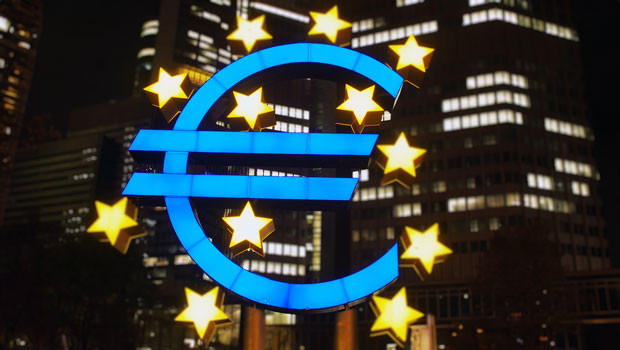Europe close: Stocks rise on bumper US jobs report

European shares posted gains on Friday as investors reacted positively to a better-than-expected US payrolls report,while oil prices continued to rise on fears of further escalation in Middle East tensions.
The pan-European Stoxx 600 index rose by 0.45% to close at 518.60, while Germany's DAX climbed 0.55% to 19,120.93, and France's CAC 40 led with a 0.85% increase to 7,541.36.
On home shores, the UK's FTSE 100 lagged slightly, closing marginally lower by 0.02% at 8,280.63.
In currency markets, the euro was last down 0.56% on sterling, trading at 83.58p, as it lost 0.63% against the dollar to change hands at $1.0961.
“The US experienced a significant boost in job creation for September, surpassing both the previous month's figures and market expectations,” said IG senior analyst Axel Rudolph.
“This positive employment report led to an increase in US stock prices, Treasury yields and the greenback as investors reacted favourably to the news.
“The job market showed robust growth, with nonfarm payrolls reaching a six-month high and unemployment rates unexpectedly decreasing.”
Rudolph said the encouraging economic indicators helped alleviate concerns about a potential slowdown in the US economy, and reinforced confidence in the Federal Reserve's ability to achieve a 'soft landing' for the economy.
“The oil price hit a four-week high above $74 per barrel on Friday, heading for its largest weekly gain since late March 2023.
“The surge is primarily driven by escalating tensions in the Middle East, with concerns about potential supply disruptions as Israel vows to retaliate against Iran.
“A strong US economy amid positive labour market data has bolstered expectations for fuel consumption, contributing to the overall bullish sentiment in the oil market.”
US adds more jobs than expected in September, EU construction stabilising
In economic news, the US economy delivered a strong performance in September, adding 254,000 jobs, significantly above the anticipated 140,000.
The unemployment rate also fell unexpectedly to 4.1%, down from 4.2% in August, confounding forecasts that it would remain unchanged.
August’s job growth was revised upward to 159,000 from a previously reported 142,000.
The Labor Department's data further revealed a slight increase in wage growth, which rose to 4% year-on-year from 3.9% in August, with monthly wages up by 0.4%, matching the previous month.
“Looking at the labour market strength evident in September’s Employment Report, the real debate at the Fed should be about whether to loosen monetary policy at all,” said Paul Ashworth, chief North America economist at Capital Economics.
“Any hopes of a 50 basis point cut are long gone.
“We continue to expect the Fed to take a more measured approach - cutting rates by 25 basis points at each meeting until the policy rate is down to between 3.00% and 3.25%.”
Meanwhile, the eurozone's construction sector showed some signs of stabilising in September, though it remains in a prolonged downturn.
The construction purchasing managers’ index (PMI) for the region rose to 42.9 from 41.4 in August, marking a slight improvement but still well below the 50-point threshold that indicates growth.
All major sectors, including housing, commercial, and civil engineering, reported declining activity.
The PMI had now been below 50 for 29 consecutive months, signalling persistent weakness across the eurozone’s construction industry.
Tariq Kamal Chaudhry, HCOB economist, said there was “no room for optimism” at the moment.
“Order intakes are shrinking alarmingly, and purchasing volumes are in the doldrums.
“It’s hardly surprising that the outlook for future activity remains pessimistic.
“A monetary policy boost from the ECB would be more than welcome to revive the construction sector, but the ECB’s recent communications hardly seem to lift spirits in the industry.”
In trade news, the European Union was set to impose significant tariffs on Chinese electric vehicles (EVs), with levies reaching up to 35.3% on top of the current 10%.
The move came despite opposition from Germany and Hungary, as the EU aimed to protect its EV industry from cheaper Chinese imports benefiting from government subsidies.
China had warned of potential retaliatory measures, particularly targeting European dairy, pork, and brandy exports.
The tariffs were being launched part of an ongoing anti-subsidy investigation launched by the European Commission last year.
Marine shipping firms sink, DSV makes gains on fresh €5bn raise
In equity markets, shares in shipping companies AP Moeller-Maersk and Hapag-Lloyd declined sharply, with Moeller-Maersk down 5.16% and Hapag-Lloyd plunging 15.99%.
The drops followed heightened geopolitical tensions and the resolution of the Los Angeles port workers' strike, which has impacted market sentiment in the shipping sector.
On the upside, Danish logistics company DSV saw its stock surge by 6.66%.
The rally came after DSV successfully raised €5bn through a new share issue to finance its acquisition of Schenker, the logistics arm of Deutsche Bahn.
Reporting by Josh White for Sharecast.com.